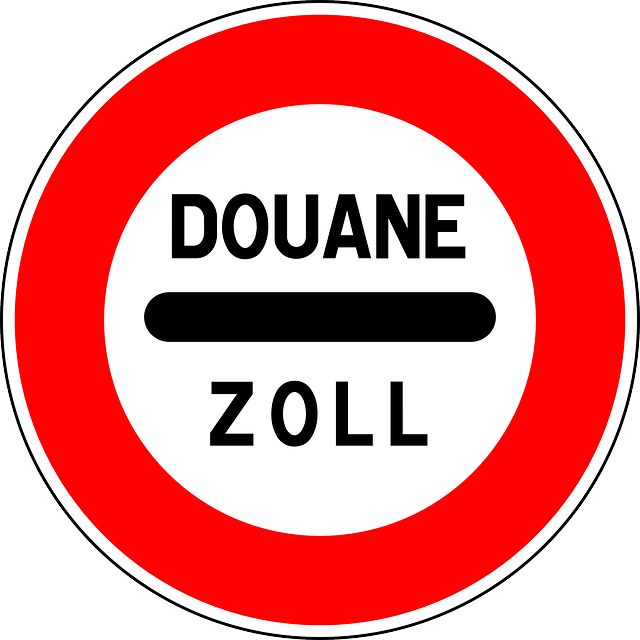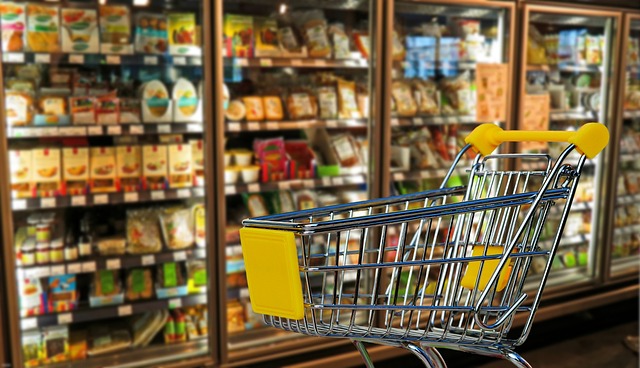Accurate translations of customs and trade documents, such as invoices, packing lists, and shipping manifestos, are vital for UK businesses engaging in international commerce. Specialized translation services employ expert translators knowledgeable in trade terminology and regulations, ensuring compliance with complex UK requirements. By partnering with these professionals, companies can avoid delays, legal issues, reduce costs, and maintain a competitive edge in global markets. Choosing reputable providers with certifications like ISO 9001:2015 and robust data security is crucial for successful international trade transactions, as demonstrated by numerous case studies involving multinational corporations and SMEs.
Accurate translations of customs and trade documents are paramount for seamless UK international trade. In a complex global marketplace, language barriers and technical terminologies pose significant challenges. This article delves into the importance of precise document translation, exploring common types of paperwork, potential hurdles, and best practices when selecting reputable UK translation services.
It highlights legal implications, compliance with regulations, and provides case studies showcasing successful translations. By understanding these key aspects, businesses can navigate international trade effectively and avoid costly mistakes.
- Understanding the Importance of Accurate Translations in UK Customs and Trade
- Common Types of Documents Requiring Translation in International Trade
- Challenges in Translating Customs and Trade Documents: Language Variations and Technical Terms
- Best Practices for Choosing a Reputable UK Translation Service
- Ensuring Quality and Precision: The Role of Professional Translators
- Legal Implications and Compliance with Regulatory Requirements
- Case Studies: Success Stories in Accurate UK Customs and Trade Document Translations
Understanding the Importance of Accurate Translations in UK Customs and Trade

In the dynamic landscape of UK customs and trade, accuracy is paramount. When it comes to documents like commercial invoices, packing lists, and shipping manifestos, precise translations are not just desirable—they are non-negotiable. These documents play a crucial role in facilitating seamless trade, ensuring compliance with legal requirements, and fostering efficient supply chain operations. Any mistranslation can lead to costly delays, misunderstandings, or even legal complications at borders.
UK translation services specializing in customs and trade documents understand this critical need for accuracy. They employ professional translators who are not just linguistically adept but also well-versed in the specific terminology and regulatory frameworks of international trade. This blend of expertise ensures that every word is translated with precision, reflecting the exact intent and meaning of the original document. Consequently, businesses can navigate the complexities of global commerce with confidence, knowing their documentation is in capable hands.
Common Types of Documents Requiring Translation in International Trade

In international trade, seamless communication is key, especially when it comes to customs and trade documents. Accurate translations are vital to ensure smooth transit, avoid delays at borders, and mitigate potential legal issues. Some of the most common types of documents requiring translation in this context include commercial invoices, packing lists, certificates of origin, and custom declarations. These documents often contain critical information such as product descriptions, quantities, values, and country of origin, which must be conveyed precisely to facilitate efficient customs clearance.
UK-based businesses engaging in international trade rely on professional translation services to navigate the complexities of these documents. Customized translations that adhere to industry standards and regulatory requirements are essential to prevent errors and ensure compliance. By partnering with expert translators who understand the nuances of customs and trade terminology, companies can streamline their operations, reduce costs associated with document processing, and maintain a competitive edge in global markets.
Challenges in Translating Customs and Trade Documents: Language Variations and Technical Terms

Translating customs and trade documents accurately is a complex task due to several challenges, particularly when dealing with the UK market. Language variations across different regions can pose significant problems, as terms may have subtle but crucial differences in meaning. For instance, what is considered “goods” in one European language might have a slightly different nuance in another, requiring translators to be adept at capturing these subtleties for compliance purposes.
Furthermore, customs and trade documentation often contains highly technical terms related to specific industries or regulatory frameworks. Terms like “tariff code,” “duty suspension,” or “health certificate” require specialized knowledge to translate accurately. UK translation services specializing in this domain employ linguists with expertise in various sectors, ensuring that these technical terms are handled competently. They also stay updated on the latest legislative changes and industry developments to provide precise translations that meet the stringent requirements of UK customs and trade regulations.
Best Practices for Choosing a Reputable UK Translation Service

When selecting a UK translation service for critical customs and trade documents, choosing a reputable provider is paramount. Look for companies that possess not only linguistic expertise but also a deep understanding of industry-specific terminology and regulations. Reputable firms will have experienced translators who are native speakers, ensuring accurate and culturally appropriate translations.
Check for certifications such as ISO 9001:2015 or equivalent, which guarantee quality management systems. Additionally, verify their handling of sensitive data and security protocols to protect your confidential information. Online reviews and client testimonials can also provide valuable insights into a company’s reliability and the quality of their work.
Ensuring Quality and Precision: The Role of Professional Translators

Accurate translation is paramount in the world of UK customs and trade documents, where even a minor error can lead to significant delays and complications. This is why enlisting the services of professional translators is essential for businesses navigating the intricate landscape of international trade. With their expertise and attention to detail, these professionals ensure that every word and phrase is conveyed with precision and clarity.
Professional translators are well-versed in not just language pairs but also the specific terminology used within customs and trade sectors. They possess a deep understanding of regulatory requirements, allowing them to produce translations that are 100% compliant. This expertise enables efficient communication across borders, ensuring smooth operations for businesses seeking to expand their global reach.
Legal Implications and Compliance with Regulatory Requirements

Accurate translation of customs and trade documents is not just a matter of words; it carries significant legal implications and ensures compliance with stringent UK regulatory requirements. These documents play a critical role in facilitating international trade, managing tariffs, and enforcing customs laws. Any errors or misinterpretations can lead to severe consequences, including delays at ports, financial penalties, and even legal disputes. Therefore, relying on professional UK translation services specializing in customs and trade documentation is essential.
Professional translators with expertise in this domain understand the nuances of regulatory language and terminology specific to customs and trade. They are adept at handling complex documents like commercial invoices, shipping manifests, and certification letters, ensuring every detail is conveyed accurately. Compliance with legal requirements not only speeds up the clearance process but also helps importers and exporters avoid costly mistakes that could impact their bottom line or even lead to legal repercussions.
Case Studies: Success Stories in Accurate UK Customs and Trade Document Translations

In today’s globalized world, accurate translations of customs and trade documents are more critical than ever for UK-based businesses expanding internationally. Case studies highlight successful collaborations between UK companies and professional translation services, showcasing the impact of precise document translation on cross-border trade. These stories often feature multinational corporations or small and medium enterprises (SMEs) navigating complex international regulations with the help of specialized translators who understand industry jargon and local legal requirements.
For instance, a leading automotive supplier faced challenges when entering the European market due to differences in product standards and labeling requirements across countries. By partnering with a reputable UK translation service, they were able to translate technical documentation, ensuring compliance with each country’s regulations. This seamless process enabled them to streamline their supply chain and expand their global reach efficiently. Similarly, an e-commerce startup successfully launched its platform in multiple European languages, thanks to accurate translations of marketing materials and website content, enhancing customer experiences across borders. These success stories underscore the value of professional customs and trade document translation services in facilitating international business growth and ensuring regulatory compliance for UK companies.
Accurately translating UK customs and trade documents is vital for seamless international trade. By understanding the common document types, navigating language variations, and choosing reputable translation services, businesses can ensure compliance with regulatory requirements. Professional translators play a crucial role in preserving precision and legal integrity, as demonstrated by successful case studies. When it comes to customs and trade documents UK translation services, prioritizing quality and expertise is key to avoiding delays and penalties.



